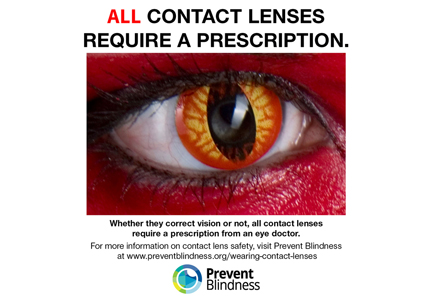
By Linda Conlin, Pro to Pro Managing Editor
Halloween is just a few weeks away and to get in the mood, I watched the movie “Pay the Ghost” (If you haven’t seen it, I don’t recommend it for children!) No spoilers here, but one of the main characters is a boy named Charlie. He dresses as a pirate for Halloween, and ever the optician, I noticed that Charlie’s eye patch was makeup carefully applied around his eye. This left him with both eyes open, so his vision wasn’t limited, and seeing that eye looking through a ‘patch’ seemed, well, spooky. Covering one eye can affect depth perception, too, which could lead to a fall. Good thinking, Charlie’s Mom!
Halloween celebrations will be a little different this year, likely with a different kind of mask. That may increase the use of makeup around the eyes which needs to be safe. Here are some recommendations for your patients. Makeup should be intended for use on the face but avoid applying it too close to the eyes. Neon or fluorescent colors should never be used near the eyes, and glitter can pose a foreign body hazard. Previously used makeup can be contaminated, so be sure to use fresh, new products. When removing makeup, be careful not to get cleansing products too close to the eyes.
With more attention given to eyes, some patients may want to try costume contact lenses. With a professional fitting, they can be worn safely. Many people, however, don’t realize that contact lenses are medical devices that cannot be sold without a prescription. That said, they suddenly are available at costume stores, nail salons, and gas stations, while they are always available online. It took only a few seconds online to find a costume lens seller that didn’t require verification information to make a purchase. This makes purchasing them for fun so quick and easy that we can almost understand why consumers don’t know the risks.
We can do more than educate our patients, too. If you know of a brick and mortar establishment selling contact lenses without a prescription, you can report them to your state’s department of health or consumer protection. You can file a complaint against illegal online sellers to the Federal Trade Commission at www.ftccomplaintassistant.gov. And you can report either brick and mortar or internet sales to the American Optometric Association’s watchdog group at [email protected]. We’ve learned a great deal this year about protecting each other. This is one more thing we can do.
Learn about the uses of contact lenses beyond vision correction with our CE, Therapeutic Contact Lenses and Beyond, at 2020mag.com/ce.











